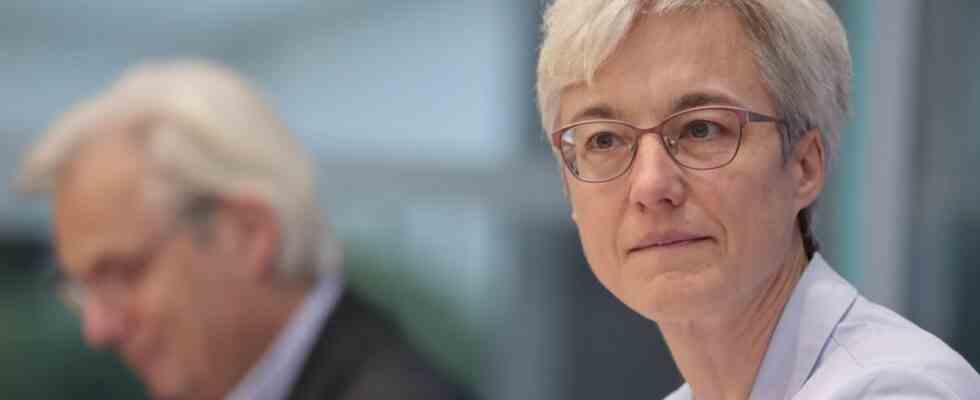Germany needs much more speed to achieve its climate goals for 2030 – this is the conclusion of the Federal Government’s Expert Council on Climate Issues. “We are much too slow. At the moment it doesn’t look as if we can achieve the goals,” said Brigitte Knopf, Deputy Chairwoman of the Council, at the presentation of the report on the status of climate policy in Germany. The Federal Republic wants to reduce its emissions of greenhouse gases by at least 65 percent by 2030 – compared to 1990.
In the report, the Expert Council shows “certain indicators that show that the achievement of goals is very unlikely,” said Knopf. This is due to the fact that the expansion of certain technologies is not progressing quickly enough. She cited heat pumps and photovoltaics as examples. In addition, old systems such as heating would not be replaced to the extent that it was necessary. Knopf said: “We have to pull out all the stops if we want to achieve our goals.” Changes in behavior are also necessary, said Knopf; they could be achieved, for example, through price incentives or information.
Two days before the start of the world climate conference in Sharm el-Sheikh, Egypt, the expert council handed over its report on the status of German climate policy to the government and the Federal Council. The independent body, to which five experts belong, published this so-called two-year report, which is stipulated in the Climate Protection Act, for the first time. Further reports will follow every two years.
The savings made so far are far from sufficient
Experts complain that too few greenhouse gases have been saved so far. “The amount of reduction achieved every year should more than double compared to the historical development of the last ten years,” said Council member Thomas Heimer, referring to Germany’s greenhouse gas emissions. According to Hans-Martin Henning, Chairman of the Expert Council, industry should save ten times more greenhouse gases than in previous years, and the transport sector 14 times as much.
The committee found that there had certainly been developments towards a more economical use of energy. However, this is offset by greater consumption and consumption. “Efficiency gains were thwarted, for example, by general economic growth, larger living space or increased transport services,” said Henning.

